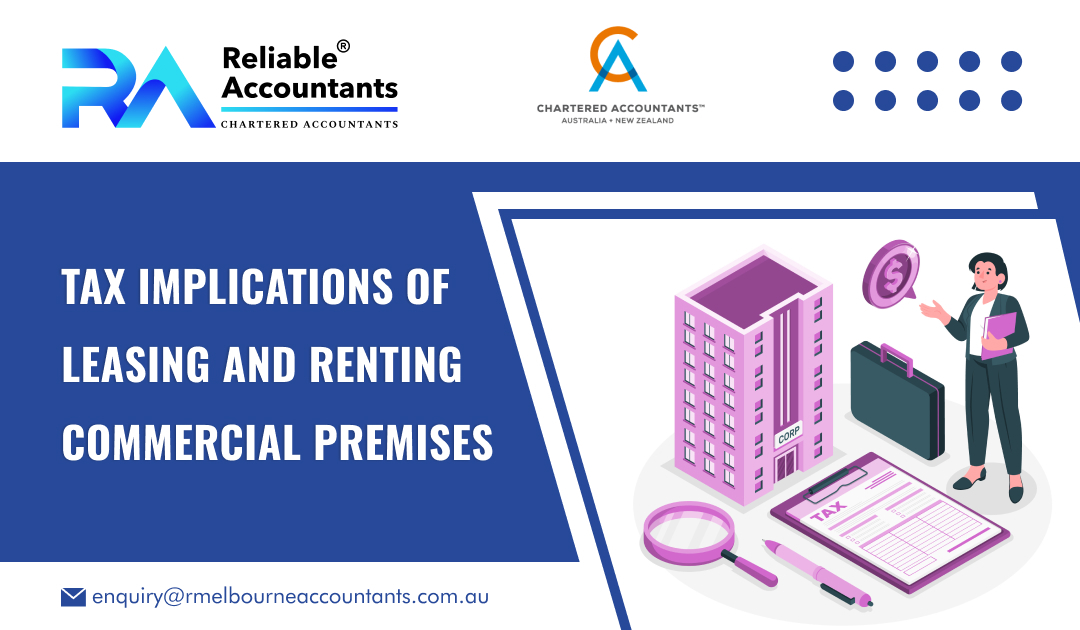Leasing or renting commercial premises can be a significant aspect of running a business. A reliable accountant is here to guide you through the complexities of this process.
Leasing and Renting Commercial Premises
If you’re a commercial property owner, you have specific obligations, you must include the full rental income in your tax return and can claim deductions for related expenses during the rental period.
Leasing As Owner
Commercial property owners have obligations for:
Income and deductions
As a commercial property owner, if you want to lease the premises to others you:
- need to include the full rent amount you earn in your income tax return
- can claim a deduction for your related expenditure for the duration your property is rented or available for rent
- can claim an immediate deduction for expenditures related to the management and maintenance of the premises, including interest on loans.
Other expenditures are claimed after a few years, including depreciation costs (such as the decline in value of depreciating assets – for instance, furniture, carpet, and appliances) and certain construction expenses.
You are not allowed to claim a deduction for expenses you incur for:
- acquisition and disposal costs of the premise: these are included in the cost base of the property for capital gains tax purposes
- expenses that you don’t pay, such as electricity or water charges paid by tenants
- expenses that are not related to rental property.
GST on commercial premises
If you are registered or need to be registered for GST, you are subject to GST on the rent you charge on commercial premises. You may have to register for GST if you deal with property and your turnover from these activities crosses the GST registration turnover threshold. It includes one-off transactions like selling, buying, developing, and leasing. You can claim GST credits on purchases that are related to renting out your property, such as the GST included in managing the fees of an agent.
Renting As Tenant
In case you rent a commercial premise as your business property, the rent will be deductible. As the tenant, you can claim GST credits for the GST included in the rent if you and the lessor are registered for GST or need to be registered for GST.
When do You Need to Register for GST?
You need to register for GST:
- when your enterprise has a GST turnover of $75,000 or above
- when you are a startup business owner and expect your turnover to meet the GST threshold in the first year of operation
- if you are already running a business for several years and have met the GST threshold
- if your non-profit organisation has a turnover of $150,000 per year or above
- when you provide limousine or taxi travel for passengers irrespective of your GST turnover – it applies for both owner-drivers and if you rent or lease a taxi
- if you want to claim fuel tax credits for your enterprise or business.
It is optional to register for GST if your enterprise or business doesn’t fit into one of these categories. If you want to register, you are required to stay registered for at least 12 months.
What If You Don’t Register for GST?
You need to check if you have met the threshold or may exceed it, in case you don’t register for GST. You are required to register for GST within 21 days if your GST turnover exceeds the relevant threshold. If you don’t register for GST and have to register, you may need to pay GST on sales made since the date you were needed to register. It could occur if you didn’t include GST in those sales’ prices.
Conclusion
You must be aware of tax implications when you lease and rent commercial premises. If you find it difficult to understand, you can also seek help from Reliable Melbourne Accountants.
More Useful Links:
Tax Accountant Melbourne
Check out this video for more:

